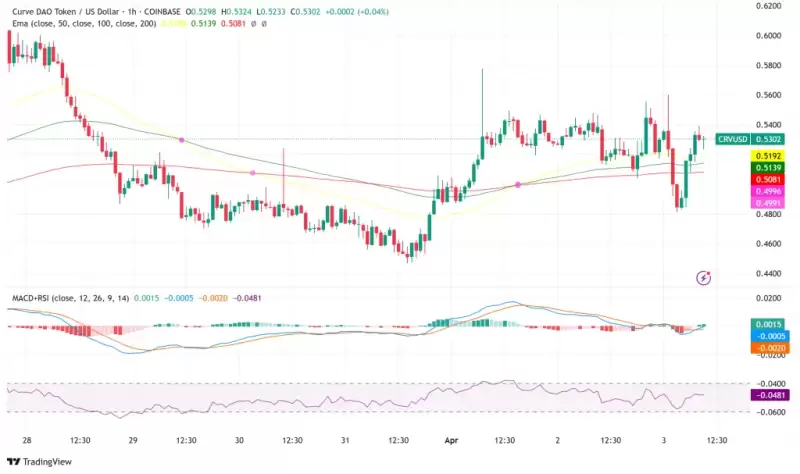 |
|
 |
|
 |
|
 |
|
 |
|
 |
|
 |
|
 |
|
 |
|
 |
|
 |
|
 |
|
 |
|
 |
|
 |
|
Cryptocurrency News Articles
Water Crisis and Climate Crisis: A Symbiotic Loop of Disaster
Mar 22, 2024 at 06:44 pm
The global climate and water crises are intertwined, with the former exacerbating the latter and water behaviors contributing to greenhouse gas emissions. Israel, facing water scarcity, has developed a circular water economy that includes desalination, wastewater treatment, and agricultural water practices. This approach, characterized by desalination, urban water use, wastewater treatment, and agricultural water practices, aims to conserve water, reduce emissions, and enhance food security. Israel's water model, including desalination, efficient water use, and advanced irrigation techniques, offers valuable insights for addressing both the climate and water crises.

Water Crisis and Climate Crisis: A Symbiotic Relationship
The world is grappling with two interconnected crises: the climate crisis and the water crisis. These crises are inextricably linked, each exacerbating the other in a vicious cycle.
Climate Crisis Amplifies Water Scarcity
As the climate crisis intensifies, it leads to more frequent and severe droughts, floods, and extreme weather events. These events disrupt water availability, leading to shortages and contamination.
Water Behaviors Fuel Climate Change
Conversely, the way we consume, transport, and dispose of water contributes significantly to greenhouse gas emissions. Energy-intensive water pumping, desalination, and wastewater treatment processes release harmful emissions. Additionally, untreated wastewater releases methane gas, a potent greenhouse gas with a global warming impact 84 times greater than carbon dioxide.
Israel's Innovative Water Economy: A Model for Sustainability
Located in an arid region, Israel has faced water scarcity challenges for centuries. Out of necessity, the country has developed a circular water economy that offers valuable lessons for addressing the global water crisis.
Desalination: Tapping into the Ocean's Abundance
Israel has invested heavily in seawater desalination, producing over 600 million cubic meters of potable water annually. This strategic move is expected to increase to 900 million cubic meters by 2030, making desalinated seawater a major source of fresh water in the country.
Urban Water Use: Balancing Quality and Sustainability
Desalinated water is mixed with groundwater to enhance its quality and ensure its safety for urban consumers. The vast majority of Israel's population resides in cities, and urban water use accounts for a significant portion of the country's water consumption.
Wastewater Treatment: From Waste to Resource
Nearly all used water in Israel is directed to wastewater treatment plants. These facilities operate on an economic basis, with multiple cities or local authorities collaborating to treat wastewater efficiently. Purification processes reduce costs and minimize the risk of untreated wastewater contamination.
Agricultural Water Practices: Maximizing Efficiency and Sustainability
Israel has achieved a world-record level of wastewater reuse in agriculture, with nearly 90% of domestic wastewater recycled for irrigation. This purified water is vital for food security, especially in arid regions. Drip irrigation, a water-saving technique invented in Israel, has been widely adopted, resulting in significant water savings compared to traditional flooding methods.
Additional Water Sources: Brackish Water and Water Loss Prevention
Israel also utilizes brackish water from desert regions for irrigation and fish farming. The country has also implemented strict water pricing policies to promote conservation.
Conclusion: A Sustainable Path Forward
Israel's circular water economy is a testament to the power of innovation and collaboration in addressing water scarcity. By embracing desalination, wastewater treatment, and efficient agricultural practices, Israel has demonstrated that it is possible to meet the challenges of the water crisis while mitigating the effects of climate change. The Israeli model provides a valuable roadmap for other countries seeking sustainable water solutions.
Disclaimer:info@kdj.com
The information provided is not trading advice. kdj.com does not assume any responsibility for any investments made based on the information provided in this article. Cryptocurrencies are highly volatile and it is highly recommended that you invest with caution after thorough research!
If you believe that the content used on this website infringes your copyright, please contact us immediately (info@kdj.com) and we will delete it promptly.
-

-

- Bitcoin (BTC) ETF Inflows Have Surged Again as Investors Ignore Trump's Reciprocal Tariffs
- Apr 03, 2025 at 02:45 pm
- Inflows into spot Bitcoin ETFs have surged once again as investors chose to look past the Trump reciprocal tariffs. The net inflows across all US ETFs for Bitcoin stood at $220 million
-

-

-

-

-

- How the 1995-S Kennedy Half Dollar Could Be Worth Over $6,000
- Apr 03, 2025 at 02:30 pm
- The 1995-S Kennedy Half Dollar might look like just another coin in your collection, but don't be too quick to dismiss it. This particular coin, especially the silver proof version, has gained significant attention in recent years.
-

-

- Bitcoin (BTC) price falls four per cent after Donald Trump imposes tariffs on trading partners worldwide
- Apr 03, 2025 at 02:25 pm
- Bitcoin as well as other major cryptocurrencies fell after US President Donald Trump imposed tariffs on trading partners worldwide, which triggered a slump in risky assets.



























































